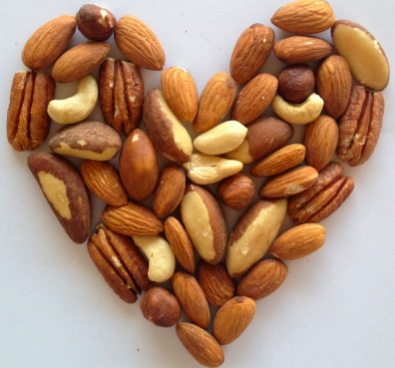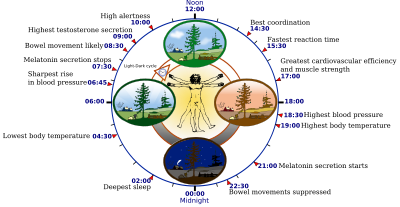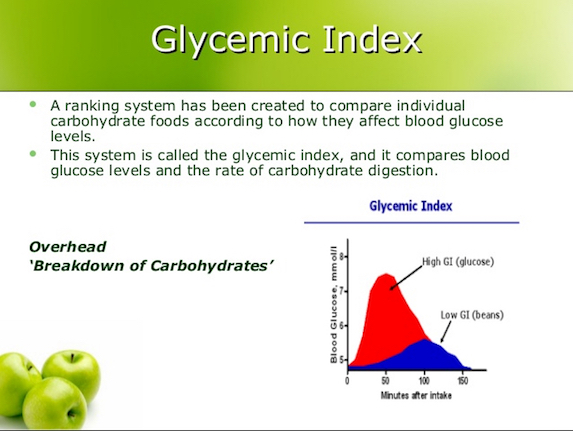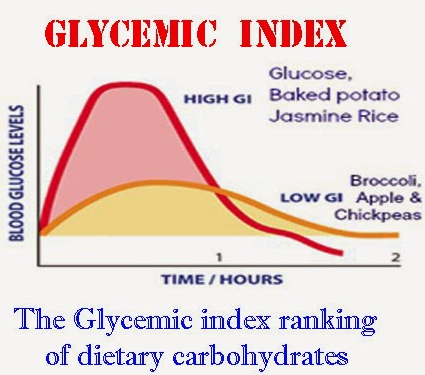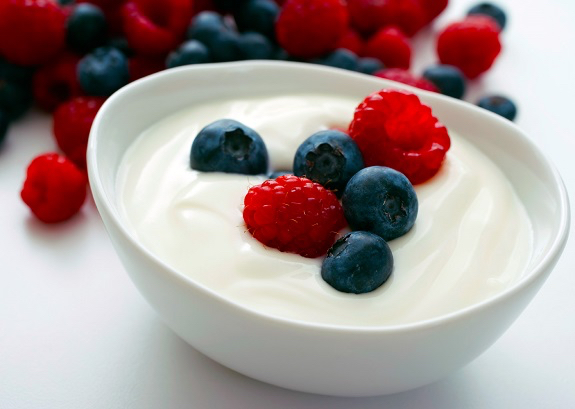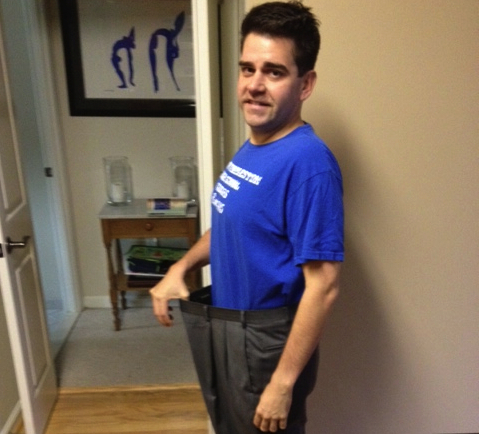The Top 5 Food Do’s & Don’t’s Affecting Heart Disease Risk
- At March 27, 2017
- By Katherine
- In Articles, News
 0
0
In 2012, 45.4% of all heart disease deaths could be attributed to inadequate intake of certain foods, according to a recently published study in the Journal of the American Medical Association.
We’ve known for decades that what you eat significantly affects heart disease risk factors such as high blood pressure, high cholesterol, hemorrhages, diabetes, and inflammation. These results were based on a variety of different kinds of studies – epidemiologic, prospective, and clinical trials – set out to quantify the effect of specific foods on heart disease deaths.
The Intake of These Top 5 Foods, In Order of Predominance, Affect Your Heart Most Dramatically
1. High Sodium: Sodium, usually eaten in the form of salt, which is half sodium, pulls fluid into your blood vessels. This extra fluid increases the force of the blood against artery walls, reducing the flow of blood to your organs, making it harder for your heart to pump the blood efficiently, and damaging your heart. This excess force (or “pressure”) stresses the artery walls, potentially causing tears, blood clots, aneurysms and strokes. The recommendation is to take in less than 2,300 mg daily. Most Americans eat at least double that.
2. Low Nuts and Seeds: Epidemiological studies have found for decades that nut and seed eaters around the world have fewer heart attacks. The oil in nuts contains nutrients which seem to have a positive impact on heart function and increases good cholesterol, which helps prevent bad cholesterol from clogging the arteries. Also, studies show nuts and seeds help keep body weight down, a major risk factor for heart disease. Eat 2 ounces per day for maximum effect.
3. High Processed Meats: Processed meats such as hot dogs, bacon, sausage, bologna and ham are a major sodium source. They’re also usually high in saturated fats, which increase bad cholesterol. Since they are the highest dietary factor correlated with cancer, this gives you another reason to minimize processed meats. But when on the occasions that you might eat them, to minimize potential damage, pair with foods high in potassium and antioxidants, such as fruits and vegetables. Potassium and antioxidants may help neutralize the effects of sodium and the chemicals used in meat processing.
4. Low Omega-3-Fatty Acid Fish: Omega-3-Fatty Acids help prevent heart disease in many ways. They prevent irregular heart beat, reduce fatty placques inside artery walls, decrease blood clotting, tryglycerides (blood fats), increase good cholesterol and decrease inflammation. The American Heart Association recommends eating about 12 ounces of fatty fish weekly.
5. Low Fruit and Vegetables: Fruits and vegetables have many qualities responsible for the reduction of heart disease risk. They are high in potassium, which helps neutralize the effect of sodium on blood volume by pulling fluid from the arteries, reducing the blood’s pressure on the artery walls. They are high in water content, which studies show helps you feel more full with fewer calories, thus aiding weight loss (high body fat is the primary controllable risk factor for heart disease). Health authorities at the National Institutes of Health, and the U.S. Dietary Guidelines recommend 5 cups of fruits and/or vegetables daily. They should comprise at least half of the volume on your plates.
Meal Timing’s Influence on Weight Loss
- At October 03, 2016
- By Katherine
- In Articles, News
 0
0
I’ve written a lot about how factors beyond calories – such as meal size, balance, and timing – affect your ability to lose weight and improve your health. A new study in The American Journal of Clinical Nutrition confirms what I’ve observed during the 20-plus years of my personalized nutrition counseling practice. And that is, having your larger meal at dinner or at lunch can make the difference between losing and not losing weight, even if the same food – and the same calories – are eaten.
This clinical trial – the gold standard type of study, because it controls all conditions so it can determine a cause and effect – took 80 randomly assigned healthy overweight or obese women and fed one group a larger meal at lunch and a smaller meal at dinner for twelve weeks. The second group was given the opposite condition: a smaller meal at dinner and a larger meal at lunch.
The groups experienced significantly different results. While both groups lost weight, the small dinner group lost more weight. They also achieved a lower fasting insulin and improved insulin resistance, a precurser to diabetes. Your insulin level is important for your health. Higher insulin levels correlate with a higher rate of heart attack and colon cancer – and possibly other cancers – as it is considered a “growth factor,” which increases cellular proliferation in the body.
“Light at night” has been my mantra since I first started working with clients, though it was poo poo’d by so many of my colleagues and doctors through the years. Well, science is finally starting to catch up with my recomendations!
New Study: The Glycemic Index of Foods Varies From Person to Person
- At December 27, 2015
- By Katherine
- In Articles, News
 0
0
The “Glycemic Index” may not be so cut-and-dry. What’s healthy for other people may not be healthy for you!
We all have friends who, no matter what they eat, stay skinny. But the opposite is more common: most of us are incredibly frustrated because, it seems, no matter how hard we try, we just cannot lose weight. Now we may understand at least one reason why.
A study published in the journal, Cell, in November, analyzed people’s glycemic (blood glucose) response, or blood sugar’s rise and fall after a meal. Controlling blood sugar is important for preventing and controlling diabetes, maintaining a healthy weight, and general all-around health. What you eat affects your blood sugar, insulin, and health levels, so a healthy diet containing mostly low glycemic index foods has been thought to be one way to control your health.
Some of the study’s results were typical and expected; glucose levels correlated with weight and age. The more overweight or older we are, the higher our blood sugar rises after meals – that is, we become more diabetic-like.
But the scientists also found important differences between individuals. First, and this was predictable: if the same person ate the same meal at different times, their blood sugar level responses remained relatively the same. But – and this was the unpredictable result of the study – different people eating the same meal at the same time produced highly variable results.
Researchers believe the differences might be explained by the quality of the gut microbiome, the understanding of which may revolutionize nutrition and health. It turns out that the bacterial organisms in the digestive tract — about 100 million of them (10 times the number of human cells), collectively called the microbiome — are akin to a fully functioning organ, and can have a positive or negative effect on human health. For instance, a healthy microbiome improves insulin sensitivity – reducing your chances of getting diabetes – and enhances your ability to lose body fat.
This – the quality of your microbiome, for instance – calls into question things like the glycemic index (GI), which assigns a food’s value based on peoples’ average glycemic response to a food. That’s because, if each person’s blood sugar responds differently at different times with different foods, then the GI index would be incorrect for people with different-than-average blood sugar responses, even for foods generally believed to be healthy.
There is some good news, though! The researchers used the data to create an algorithm that predicted the glycemic response of the participants. When they used this data to tailor diets for people, they saw improved blood sugar responses. These findings could be used to develop personalized and individual diets that don’t rely on averages. This just may crack the case for those having difficulty getting fit.
This is why I find it so important to PERSONALIZE your diet. One size doesn’t fit all!
Yogurt’s Vast Array of Health Benefits
- At November 16, 2015
- By Katherine
- In Articles, News
 0
0
Yogurt has long been considered a healthy option, as it’s packed with protein, calcium, potassium and other nutrients. It’s a great way to get probiotics, which are important for improving digestive health; but also a vast array of health conditions.
Yogurt consumption has been shown to improve bone health (eating yogurt lead to better bone mineral density) and cardiovascular health (yogurt-eaters were 31% less likely to develop high blood pressure), lower one’s risk of getting Type 2 diabetes, and be a useful tool in weight management.
Many of these benefits come from the probiotics found in yogurt, which are associated with a myriad health improvements. Evidence shows that probiotics could help prevent Type 2 diabetes by preventing insulin resistance and allowing your body to more readily burn body fat. But probiotic benefits may go beyond that. Some studies have even shown that probiotics led to improvements in immune functions in HIV-infected patients.
The research is clear: yogurt is a great addition to any diet, particularly if you want to improve your immune response and powers of healing, bone, heart, gastrointestinal health or improve your weight. Pick some up today! I believe any type will do… as long as you eat at least one or two cups per day.
Trying to Lose Weight? Skip the Diet Soda and Go To The Tap!
- At November 13, 2015
- By Katherine
- In Articles, News
 0
0
People trying to lose weight look for any way to cut calories. We tend to consume a lot of calories in liquid form, so people often think diet beverages are a great way to help them lose weight. But researchers have a better (and cheaper!) solution: good old fashioned water.
In a recent American Journal of Clinical Nutrition study, participants on a weight-loss plan were asked to cut out diet drinks in favor of water after lunch over 24 weeks. Compared to those who stuck with diet soda, those who drank H2O saw greater weight loss and better insulin resistance.
Water is cheaper than diet beverages and is great for digestion. So if you’re looking to improve your health and slim down, skip the can and head for the tap! Your stomach will thank you.
Reason? This study I’ve written about shows artificial sweeteners may reduce your ability to burn body fat, but there may be other reasons, too…
Two Large Meals (Breakfast & Lunch) are Best at Controlling Weight
- At May 21, 2014
- By Katherine
- In Articles, News
 2
2
- Mark Indre began eating a larger breakfast and a lighter dinner… “I have lost more than 35 pounds and have kept it off for more than two years with Katherine’s Diet Simple program.”
A new study confirmed what I’ve suspected for the twenty (or more) years I’ve been a diet counselor. Eating hearty meals earlier in the day instead of in the evening leads to weight loss and better health, even when the same foods and same calories are eaten.
A recent study published in the scientific journal, “Diabetologia,” found people with Type 2 Diabetes eating a large breakfast and lunch – and no dinner, as compared with those eating six small meals with the same calories – lost more body fat, liver fat, and improved insulin sensitivity.
That’s not to say you shouldn’t be eating dinner, as scientists often exaggerate conditions to get measurable results in their studies. But you can likely use the study’s conclusions to make positive changes for your health and weight, as did my client, Mark Indre.
“I lost more than 35 pounds and have kept it off for more than two years,” said Mark Indre.
Some points to consider…
Does this sound familiar? You get home from work, stressed and ravenous. You head straight for the kitchen, grab a bowl of nuts or a plate of cheese and crackers. You nibble as you’re preparing dinner. After dinner, you settle on the couch, most likely in front of the television, and zone out with some favorite snacks, such as popcorn, chips, nuts, ice cream, peanut butter or sweets—whatever is tasty and easy to grab.
Welcome to the typical American evening! For many people, it’s an endless graze that doesn’t stop until they go to bed.
Evening overeating is an issue that contributes to many peoples’ weight problems. I’ve been surprised at just how many people struggle with this. I used to myself. Even disciplined people who carefully watch their intake during the day break down at night. I can’t count how many times I’ve heard these refrains: “I’m fine during the day, my problem’s at night,” or “If I could control my eating at night, my weight problem would probably disappear…. ”
This is important because more and more research is confirming the importance of eating lighter at night and heavier during the day – for health, not just weight. A recent study published in “Diabetologia” found people who at a large breakfast and lunch – and no dinner, as compared with people with type 2 diabetes who ate 6 small meals – lost body fat and improved insulin sensitivity. This occurred while eating the same calories, just distributed differently.
It’s become clear to me that evening overeating is not just an isolated problem but the convergence of a host of lifestyle issues—stress, exhaustion, loneliness, disorganized eating and hunger.
In today’s fast-paced world, many people are constantly hopping from meeting to meeting or from chore to chore during the day and don’t have time to sit down and eat a decent meal. So we become ravenous. In the evening, there’s more time for eating, so we not only eat larger meals, but continuous ones. Those who are tired or stressed find that food is an easy way to reward themselves at the end of the day. Food can provide a little companionship for the lonely or depressed. Researchers who have identified “night eating syndrome,” the most severe form of evening overeating that affects about five percent of obese people seeking treatment, say it is stress-related.
“We believe it’s a stress disorder which causes people to eat more than one-third of their calories after the evening meal,” says obesity researcher Albert J. Stunkard, who has studied nighttime overeaters since the 1950s and recently co-authored “Overcoming Night Eating Syndrome: A Step-by-Step Guide to Breaking the Cycle” (New Harbinger Publications, 2004).
Evening overeating is an important problem to solve because Americans who eat most of their daily intake of food at night eat more overall calories, according to a study reported in the Journal of Nutrition. And that makes them more susceptible to weight problems.
“The late-night period was when the highest-density foods were eaten. Eating a high proportion of daily intake in the late evening, compared to earlier in the day, was associated with higher overall intake,” researcher John M. de Castro concluded in the study, which analyzed food diaries of about 900 men and women.
De Castro, professor and chair of the department of psychology at the University of Texas at El Paso, also found that evening eating was less satisfying for people, which may help explain why they eat more.
“In the evening, you get lower satiety. People tend to eat very large meals but then eat again shortly afterward,” said de Castro.
For those who succumb to nighttime overeating, I recommend you attack this problem by assessing why this may be happening to you and then devising specific personalized strategies for eating lighter at night. Some points to consider:
Breakfast: De Castro’s study found that a “high proportional intake in the morning is associated with low overall daily intake.” This finding confirms my experience of 25+ years: Eating a bigger breakfast is the single most effective way of curbing evening overeating. Other studies have confirmed the importance of breakfast for maintaining weight loss.
I advise my clients to eat one-third of their daily calories in the morning. For most people, that’s at least 600 calories, much more than they’re used to consuming.
While solving other issues such as end-of-day stress, exhaustion and emotional issues are important, too, I’ve found that nothing works unless morning eating is beefed up first. Eating more in the morning is a scary proposition for many people who fear that they’ll continue their evening overeating on top of the bigger breakfast. But my clients who bite the bullet and give it a try are amazed to find that it reduces cravings and gives them a sense of control, so that it is easier to eat more moderately later in the day.
Interestingly, de Castro found that people are more sated with the food they eat in the morning. “If they eat a large breakfast, they’ll wait a long time before eating again. They get a lot of bang for the buck,” says de Castro.
Organized eating: Researchers have found that most people with the more severe “night-eating syndrome” don’t have regular meal and snack times. I have also found this is true for evening overeaters. Most overeating is due simply to undereating throughout the day and poor planning. I hear so many people say “I have no will power,” or “I hate myself because I have no discipline.” But they somehow regain their “discipline” and “will power” by simply planning and eating regular daytime meals and snacks.
That’s why I advocate cooking in large batches and regular grocery shopping so that you have healthy and delicious foods at your fingertips when you get home from work in the evenings.
Trigger foods: Many people who overeat in the evenings have “trigger” foods, specific foods they crave and are more likely to overeat, such as chips, chocolate or peanut butter. The experts find the avoidance of trigger foods can reduce evening overeating.
Assessing hunger: Your body lets you know what it needs. One key to lasting weight management is being in touch with your body and its signals. In the evening, before eating, get rid of distractions, take a few deep breaths and stop to think if you’re physically hungry. If you’re hungry, eat. If you’re not, or if you’re not sure, you shouldn’t eat.
Stress management: Many people overeat in the evenings as a way to cope with the stress and exhaustion they may feel or to reward themselves at the end of a hard day. But this is a self-defeating response to stress or rewards. When you come home, never head straight for the kitchen. Instead, hop in the shower or tub to decompress, take a walk or stretch. Once relaxed, then decide what you’d like for dinner. Better yet, hopefully you’ve already planned your dinner.
Of course, these actions are only possible if you’ve fed yourself properly during the day and you’re not ravenous.
Reducing behavioral associations: Like Russian scientist Ivan Pavlov’s famous dogs, we can train ourselves to salivate and crave food in connection with just about any activity. Playing cards, eat. Watching a movie, eat. Going to the mall, eat. Talking on the phone, eat. Reading in bed, eat. Watching TV, eat. The experts recommend you eat only when seated at your dining or kitchen table, without distractions, so that you don’t develop an association between eating and any activity, place or person. The only stimulus for eating should be hunger. Distractions tend to reduce inhibitions to overeating.
When to eat: There is no hard-and-fast rule governing the timing of your last meal in the evening. I recommend that evening calories don’t exceed lunch or breakfast calories and that you eat at least two-thirds of your day’s calories before dinner. It’s important to go to bed feeling light, not full. This way, you awake hungry for a big breakfast.
Harvard Study Finds Certain Foods – NOT Calories – Have a Strong Impact on Weight Gains and Losses
- At June 29, 2011
- By Katherine
- In Articles, News
 7
7
Individual foods are more important than calories when it comes to long term weight gains or losses, according to the study. Specifically, potatoes are associated with weight gain, along with sugar-sweetened beverages and meats, while foods like fruits, vegetables, whole grains, nuts and yogurt, are associated with weight loss, according to the study.
“Modest changes in specific foods and beverages, physical activity,TV-watching, and sleep duration were strongly linked with long-term weight gain. Changes in diet, in particular, had the strongest associations with differences in weight gain… The idea that there are no ‘good’ or ‘bad’ foods is a myth that needs to be debunked,” said a researcher in a press release. The study appears in the June 23, 2011, issue of the New England Journal of Medicine.
When I was contacted by USA Today reporter, Oliver St. John, to comment on the Harvard Study, this gave me an opportunity to look over the study so that I could offer an analysis which would help not only “USA Today” readers, but me and my clients better understand it.
I found some of the claims made regarding the study incomplete.
While this is an interesting study and confirms much of what we know about healthy and unhealthy foods, I’m concerned about the sweeping conclusions for the following reasons:
The Harvard study is epidemiological, the kind of study which analyzes large populations and their health outcomes. Because the facts cannot be precisely measured, as it would be in a clinical study -nobody is weighing and measuring the foods people are eating, their body weights, or their lifestyle patterns – the conclusions which can be made are limited. This is true for many reasons. First, there are no “controls” in the study; making it difficult to tease out confounding variables having an effect beyond the particular foods being studied. What I mean is: eating certain foods is associated with specific behavior patterns, so it’s impossible to determine if the effect (weight loss/gain) is due to the food or the behavior pattern. For instance, studies of whole-grain eating find it is a “marker” for engaging in many healthy behaviors. People who eat whole grains are more likely to exercise and eat more vegetables. SO when epidemiological studies find whole grain- eaters are healthier, one must ask: is the effect due to eating whole grains or the lifestyle associated with eating whole grains? The only way to answer this question is, once the epidemiological data is observed, to take the observations into a lab and do a controlled clinical study. The clinical study would need to control for everything – exercise, diet, body weight, etc – and change only whether people are eating refined or whole grains, to determine if the health effect is due to the whole grain eating or the lifestyle.
POTATOES
The Harvard study found potato-eating associated with weight gain. The researchers warned against eating potatoes, attributing the weight gain to the rise in blood sugar caused by potatoes.
I am not quite convinced. Why?
First, many foods cause rises in blood sugar – including whole wheat bread and whole grain cold cereals. But they aren’t associated with weight gain, in fact, quite the opposite.
Second, in America, most potatoes are eaten as french fries or potato chips, and these are very fattening versions of potatoes. So, the way potatoes are cooked – not the potato itself – may be why Harvard’s epidemiological study found potato-eating is associated with weight gain. This argument points to excess calories as a factor.
Also, and this may be an important factor explaining why potatoes are associated with weight gain. When people eat french fries, they are usually eating hamburgers and hot dogs alongside. Not only that, the beverage they’re drinking is SODA (a known contributor to obesity in adults and children). Therefore, instead of the potatoes causing the problem, could it be the meal pattern or high calorie lifestyle associated with people who eat french fried potatoes? In the United States, french fries are eaten together with fattening, unhealthy foods, known to be correlated with increased weight, diabetes, heart disease, you name it. Same with potato chips. People who regularly eat french fries, potato chips, and sodas also eat other fattening and unhealthy foods. In fact, studies show soda-drinking, for instance, is another “marker” but this time, for engaging in unhealthy behaviors like smoking and being sedentary. These confounding variables could influence the study’s results.
This brings me to the last piece of evidence – and what convinces me the most – that potatoes do not a cause weight gain: SWEDEN
In Sweden, people are no fatter than Americans, in fact, they’re slimmer. But, they eat potatoes every day, and often more than once a day. But when Swedes eat potatoes (and I’m sure of this as I am a Swede and visit often), they eat them in small portions, they’re boiled, topped with a little butter (oops), alongside FISH. Not burgers, not fried fish, just grilled, steamed, cured, smoked, or sauteed FISH.
So, if eating potatoes in Sweden is not associated with weight gain, could it be because the potatoes are cooked in a healthier way than in the United States and the meal pattern is a healthier one? 1) the potatoes are boiled, not fried, 2) the potatoes are eaten in smaller, more reasonable portions, and 3) the potatoes are more often eaten together with other healthy foods, such as fish – not burgers and sodas.
And, how do you explain all those poor, skinny Irish and Russians – heck, anyone living in the northern parts of the world – people who subsisted on and depended on potatoes as their only vegetable for centuries. Why didn’t the potatoes make them fat?
Do I believe potatoes are a wonder food? No. But I also do not believe potatoes are “POISON,” as some commentators have stated.
Should you be eating larger portions of watery vegetables and smaller portions of starchy vegetables, such as potatoes? Yes.
Do I occasionally enjoy French Fries and Potato Chips, known to be fattening, unhealthy foods? Yes I do.
Do I eat French Fries and Potato Chips on a regular basis? No, I do not. Do I wish I could?
Yes I do, but I’d rather be healthy and slim.
NUTS
 People eating nuts were more likely to have lower body weights, according to the Harvard Study. Their explanation is that nuts are satiating; they make us feel full, inferring that they lead to eating fewer calories overall. Clinical studies have found years ago that adding nuts to meals, especially breakfast, decreased overall calorie intake, making weight loss easier. This is one reason why I have been encouraging nut-eating for many years. Also, we’ve known for quite a while that nut-eaters around the world have fewer heart attacks and are healthier in other ways.
People eating nuts were more likely to have lower body weights, according to the Harvard Study. Their explanation is that nuts are satiating; they make us feel full, inferring that they lead to eating fewer calories overall. Clinical studies have found years ago that adding nuts to meals, especially breakfast, decreased overall calorie intake, making weight loss easier. This is one reason why I have been encouraging nut-eating for many years. Also, we’ve known for quite a while that nut-eaters around the world have fewer heart attacks and are healthier in other ways.
Does this mean you cannot gain weight eating too many nuts? No. Plenty of people eat too many nuts and can become overweight because of it. Nuts are healthy, but fattening little morsels. One ounce, or a small handful, contains about 180 calories. This is why I recommend most people eat one ounce per day. But if weight is not an issue, two ounces a day – or more, if you can afford the calories, is fine – and is even heart healthy. When I work with people wanting to gain weight healthfully, I advise snacking on nuts!
Are certain nuts better than others? I’m not convinced of this. Every time a new study comes out about a nut – any nut – it’s positive news. Certain nuts, though, are more commonly eaten, have a bigger consumer base, and more money to fund scientific studies. This may be why you hear about some nuts over others. It is also a very expensive and time-consuming process for a food to be approved for a health claim on a food label. So, only certain nut growers can afford to put health claims on their labels, and educate you about their health benefits.
While you already know each nut has a different look and flavor, each nut also has its own unique nutritional characteristics. For instance, almonds are the highest in protein and Vitamin E, and the lowest in artery-clogging saturated fat. Walnuts are the only nut with omega-3-fatty acids. Pecans have the highest antioxidant content. Pistachios contain lutein, a compound which may significantly improve eye health.
Bottom Line: Eat nuts every day.
They’re good for you and may help you eat fewer overall calories because they’re so satiating!
Yes, calories matter: So, stick with just one or two ounces, if weight is an issue. If not, eat more.
YOGURT
The study found yogurt-eating associated with lower body weights. Whole civilizations have known about yogurt’s health benefits for thousands of years.
When my mother was recovering from hip replacement surgery I advised her to live on yogurt, fruits and vegetables for healing AND to prevent weight gain from being immobile. It worked. She healed very quickly and lost a little weight at the same time. She was thrilled. I’ve repeated the same advice to my clients, when appropriate, and they’ve been thrilled with the results, too.
Yogurt has many positive qualities. I’m convinced: Yogurt is a Superfood; it may be one of the best overall foods you can eat. Yogurt creates a natural way to boost your immune system by providing probiotics which increase the healthy bacteria in your gastrointestinal tract, according to my friend and colleague, Jo Ann Hattner, MPH, RD, in her book, “Gut Insight.”
Probiotics are live bacteria that promote digestive health. As we age, it is thought that bacterial populations in our gut change – resulting in increased harmful, disease-causing bacteria and fewer protective bacteria. When you add probiotics you repopulate the gut with beneficial bacteria that protect against infection-causing toxins.
You also improve colon health by lowering pH of the colon, so it’s receptive to the beneficial bacteria and detrimental to the disease-causing bacteria, you protect the intestinal lining, and strengthen immunity. Exciting research is evolving on the health benefits of probiotics.
But correlating yogurt with lower body weights is complicated. Do you believe people who regularly eat french fries, potato chips, burgers and sodas eat much yogurt? I don’t think so. This is another case where lifestyle probably plays a huge role and why Harvard’s epidemiological study found yogurt was associated with lower body weights.
While it may be true that yogurt has health benefits causing leanness, this hasn’t been proven conclusively in clinical studies yet. There have been studies showing dairy foods are very satiating… That is, when you eat yogurt, you feel full in relation to the calories. And when you feel extra satiated by something, such as yogurt or nuts, it helps you eat fewer overall calories for the day. There is some evidence that the protein in yogurt may be especially high quality, spare lean muscle (and bone), and increase metabolism, thereby making weight loss a little easier. Diary products may also contain other bioactive compounds contributing to leanness. The Harvard researchers speculated the probiotics in yogurt may be responsible for the weight benefit. All of these reasons could be significant. But, the most significant factor probably is: Yogurt-eaters are more likely to live a healthy lifestyle, exercise, and eat other healthy foods.
My clients, family and friends have known this for years. Why? I love keeping up with the science and keep myself and them informed.
Eat Less, Live Longer?
- At December 10, 2010
- By Katherine
- In Articles
 0
0
Original Content, The Washington Post
Lose weight! Feel great! Live longer!
Every diet guru makes the same claims. But can so many different plans get the same results? Can you achieve the same positive responses from the low-carb, high-saturated-fat Atkins regimen as you do from the abstemiously low-fat, almost vegetarian approach at the other extreme?
This may come as a surprise, but the answer is probably yes. While these regimens seem very different, they share a significant common theme: They restrict your calories and cause weight loss.
Scientists are finding there may be a more straightforward way to not only lose weight, but to avoid heart disease, cancer, diabetes and to even live longer. The secret is to focus sharply on reducing calories.
A growing body of scientific evidence shows that any time you restrict calories you will receive significant health benefits that may not only help you lose weight, but effect a series of biological mechanisms that may prolong your life. (It is important to note that once you go off these diets and if you gain weight, all of the positive benefits are lost.)
It works in animals. Rats fed calorie-restricted diets live 50 percent longer than their normally fed counterparts. Their quality of life is superior, too. They’re healthier, more active, their hormones are at more youthful levels and their immune function is superior. The same is true with fish, flies and worms. There have been preliminary positive results with rhesus monkeys and even humans.
The results of the first human study on calorie restriction, performed at the Washington University School of Medicine in St. Louis, are interesting.
“People on severe calorie restriction have a reduced risk of developing stroke, heart attack, arteriosclerosis and diabetes,” said Luigi Fontana, instructor of medicine at the university’s division of geriatrics and nutritional science and lead author of the study in the Proceedings of the National Academy of Sciences published last month.
“Since 40 percent of Americans die of these causes, these health improvements would increase many peoples’ life expectancy,” said Fontana. “Calorie restriction would also help reduce the 300,000 cases of preventable death due to obesity.”
The kind of calorie restriction being studied shouldn’t be confused with malnutrition (which occurs with starvation or semi-starvation when food is scarce) or in disordered eating. The important difference is while the calorie restrictors cut calories by 25 percent, they eat dietitian-designed, doctor-supervised diets containing all of their essential nutrients. They eat about 20 percent to 26 percent of their calories from protein, 28 percent from fat and the rest from high-volume, low-calorie, nutrient-dense carbohydrates such as fruits, vegetables, whole grains and legumes.
As pure science, calorie restriction makes a compelling case. Anecdotally, we’ve all seen how reducing calories restores health, energy and well-being in our friends and colleagues who are on diets and losing weight. But most don’t continue on those regimens, and, therefore, the benefits don’t last. As a practical matter, long-term severe calorie restriction is probably unworkable for most Americans, and it still hasn’t been proven that it’s healthy or safe for humans in the long run.
“Calorie restriction studies are provocative; but you may end up with deficiencies dangerous for your health,” says Fontana. “Chronic calorie restrictors are taking risks.”
But the research is finding that there are certain aspects of aging that we can change. There are several theories as to why and how calorie restriction prolongs your life. The reasons it reduces disease risk factors and prolongs life are probably varied:
• It lowers your metabolic rate. “The higher your metabolism, the more oxygen your body burns,” says Eric Ravussin, a professor at the Pennington Biomedical Research Center in Baton Rouge, La. “This produces ‘reactive oxygen species,’ which are byproducts of metabolism and are harmful.”
ROS damage the building blocks of life, including protein, lipids and genetic material, DNA. This leads to abnormal genetic signals, causing cancers and disregulation of cells, leading to organ damage, skin deterioration, and maybe even gray hair — all signs of aging.
• Calorie restriction reduces inflammation, which is one cause of many diseases, such as heart disease and arthritis. Also, calorie restriction reduces some “growth factor” hormones.
“When you eat extra calories, your body gets a signal that you’re growing and growth factor hormones promote cell proliferation, which may increase the risk of cancers, among other dangers,” says Fontana.
• Calorie restrictors also have lower hormone levels, body temperatures, plasma insulin levels, and higher levels of the hormone, DHEA. The same is also true about people who live longer, according to the Baltimore Longitudinal Study on Aging, an ongoing study funded by the National Institutes of Health.
• Calorie restriction reduces body fat, which research shows has many benefits.
“We used to think body fat was inert, But it isn’t,” says Fontana. “Fat tissue produces hormones, pro-inflammatory chemicals, which regulate metabolism, the immune system, inflammation and the progression of artery hardening, so that when you have less body fat, you get many biological benefits.”
There are many advantages to calorie restriction. But there are downsides to severe calorie restriction, too. In fact, scientists are not recommending it as a key way to stay healthy, since the research is not complete. Abnormally low metabolism can cause irritability or depression in some people or may backfire and lead to an eating disorder. If you eat too few calories and hormone levels lower too much, this may lead to infertility problems or increase chances of osteoporosis in women.
I believe that one of the real benefits of the low-calorie approach is that it places important emphasis on the central issue: reducing calories, rather than getting diverted into seemingly important, but in fact, peripheral matters, such as carb and fat counting.
Katherine Tallmadge is a Washington nutritionist and author of “Diet Simple” (Lifeline Press, 2004). Send e-mails to her at food@washpost.com.
© 2004 The Washington Post Company
Successful Weight Loss Depends on Frequency of Interaction with a Dietitian
- At December 10, 2010
- By Katherine
- In News
 0
0
Physicians frequently prescribe medications to help individual’s lose weight. More often than not, few other lifestyle modification changes are recommended, or resources provided. Researchers sought to compare methods of delivering lifestyle modification programs to patients receiving sibutramine, a prescribed weight loss medication.
This study once again shows that the more frequently a person interacts with a dietitian to help in their weight loss endeavors, the greater the weight loss – even if weight loss medication is involved. The HF-TEL contact with a dietitian was similar to HF-F2F in promoting weight loss. Even the email counseling resulted in a weight loss that, sustained over time can have a considerable impact on a person’s risk of developing disease. In real-world situations, it may be difficult to conduct face-to-face sessions with a provider over the long haul, but when other methods are used together, they can work synergistically to help a person achieve their desired weight loss.
Resource: Digenio AG, Mancuso JP, et al. Comparison of methods for delivering a lifestyle modification program for obese patients: a randomized trial.Ann Intern Med. 2009;150(4):255-62


